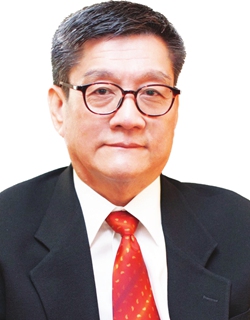Philippines unlikely to gain support from other ASEAN countries for its S.China Sea provocative approach

Beijing Photo: VCG
Editor's Note:In 2023, the world continued to witness significant changes and turbulence. As we have entered into 2024, we conducted in-depth interviews with leading strategists from various countries and regions to gather their perspectives on the prominent global issues of 2023 and China's role in addressing them as well as their expectations for China in 2024.
In the fourth piece of the series, Koh King Kee (Koh), president of Center for New Inclusive Asia, a non-government Malaysian think tank, shared his thoughts with Global Times (GT) reporter Li Aixin on China's diplomacy, the development of China-ASEAN ties and the situation in the South China Sea.
GT: Looking back at 2023, what diplomatic achievements of China impressed you the most?
Koh: The Third Belt and Road Forum for International Cooperation held in Beijing on October 17 and 18, 2023, commemorating the 10th anniversary of BRI is without question the most important diplomatic event of the year for China. With the theme "High-quality Belt and Road Cooperation, Together for Common Development and Prosperity," the forum was attended by representatives from more than 150 countries and over 30 international organizations.
Over the last decade, the BRI has evolved from a connectivity project, based on the concept and spirit of the ancient Silk Road, into an inclusive global cooperation partnership led and driven by China, but shared and owned by all partner countries. The BRI has become a platform through which China shares its technology, development experience, contributing to the realization of the UN Sustainable Development Goals. It is a concrete manifestation of China's peaceful rise.
China's successful mediation of the Saudi-Iran detente in March 2023 is another notable diplomatic achievement that tacitly reflects China's growing influence on the global stage. This diplomatic feat, which surprised the West, will foster the collective rise of the Muslim world and potentially change the global power dynamics in the post-Ukraine war era.
It is indisputable that China-US bilateral relations play a crucial role in shaping the world order. The Xi-Biden meeting in San Francisco in November, 2023, stopped further decline in US-China relations and paved the way for the normalization of strained relations. Channels of communication for trade and military between the two countries have now been restored, and people-to-people exchanges are encouraged.

Koh King Kee Photo: Courtesy of Koh
GT: How do you see China's role in resolving the Russia-Ukraine and Palestine-Israel conflicts?
Koh: China is pro-peace. It supports the UN Charter in safeguarding the territorial integrity of states and has always called for peaceful settlement of conflicts through negotiation.
In March 2023, China presented a 12-point proposal for a peace settlement in Ukraine, which includes guarantees for the export of grain and assistance to the post-war reconstruction of Ukraine.
China has also called for a ceasefire of the Palestine-Israel conflict and an end to the sufferings of the people of Gaza.
In the hyperconnected world of the 21st century, both physically and digitally, there is no spatial limit to the impact and repercussions of any conflict anywhere in the world. As a global power and a pillar of the international system, China has the standing and capacity to play a meaningful, effectual and constructive role in finding a solution to these conflicts.
GT: The Palestine-Israel conflict can be considered a "black swan" event in 2023. What event do you predict to be a "black swan" or "grey rhino" in 2024?
Koh: The next "black swan" may take place in the Middle East and North Africa region where several hotspots could potentially set off accidental conflicts.
As Houthi rebels continue intermittent missile and drone attacks on Israel-connected ships in the Red Sea, commercial vessels are forced to reroute through South Africa, causing international freight to skyrocket, severely disrupting international trade flows. The US-led multinational naval force seeking to combat Houthi attacks could further complicate the situation and reignite widespread terrorist attacks against US and its allies.
Meanwhile, the US-Iran tension could escalate into a full-frontal conflict and trigger off another oil crisis. A recent killing of a high-ranking Iranian general in an Israeli airstrike in Syria is likely to provoke retaliatory action by Tehran, sparking a regional spillover as Iran-back groups in Yemen, Lebanon, Syria and Iraq launch attacks on Israel and its allies.
GT: What are the current challenges to global governance? How have the three global initiatives proposed by China contributed to global governance?
Koh: The contemporary global governance system has failed to manage the complex issues in today's highly interconnected and interdependent world brought about by globalization, technology advancement and the collective rise of the Global South. The Western-dominated global governance system needs reform to reflect the new political and economic realities of the 21st century and take into account the legitimate rights and interests of the developing nations.
Humanity is now confronted with unprecedented challenges from climate change, cybersecurity, widespread conflicts and unpredictable outcomes of generative AI. China's three global initiatives, Global Development Initiative, Global Security Initiative and Global Civilization Initiative, are its proposals to address these mounting global issues. These initiatives are the comprehensive practical application of China's concept of global governance - mankind is a community with a shared future.
It is unquestionable that peace is the foundation of humanity's persistent pursuit of development. There can be no sustainable development without peace and no peace without sustainable development. China believes that security is the most important global public good, and development is the shared responsibility of all countries.
China advocates coexistence, exchange and mutual learning among different civilizations, as no civilization is more superior than any other. All countries should uphold common values of peace, development, equity, justice, democracy and freedom.
The global challenges we face today impose an urgent need for a new paradigm of global governance beyond just optimizing the self-interests of nation-states. China's three global initiatives are its answers to the world that is now at the crossroads of history.
GT: For a long time, ASEAN has insisted on not taking sides in the major power game between China and the US. But the US has been complicating the South China Sea issue. Facing a more complex situation, does ASEAN feel greater pressure? How will ASEAN respond?
Koh: ASEAN has always maintained its centrality amid China-US strategic competition. It does not dance to the tune of the big powers.
The US is a country thousands of miles away from ASEAN. Its relationship with ASEAN is essentially transactional, mainly serving its geopolitical interests.
ASEAN and China are close neighbors with long historical ties. They have been each other's biggest trading partners since 2020. Thus, China and ASEAN are a natural community with a shared future. Their relationship has remained by and large stable, cooperative and friendly overtime, with a few isolated and occasional disruptions and differences due to domestic politics of member states or instigations by external powers.
ASEAN and China upgraded their relationship to Comprehensive Strategic Partnership in November 2021, and have started negotiation on the third version of the ASEAN-China Free Trade Agreement. Meanwhile, ASEAN and China have also agreed on the guidelines to accelerate negotiations for the Code of Conduct in the South China Sea.
These positive developments are unequivocal testaments of the resilience and maturity of ASEAN-China relations.
GT: Could a conflict be sparked accidentally in the South China Sea in 2024? Are all parties involved able to control the situation?
Koh: The US' China containment strategy is to shape the strategic environment in which China operates. Destabilizing China's surroundings, particularly the South China Sea, has been US' strategic objective.
The Philippines, as a US treaty ally, maintains the closest relations with the US among all ASEAN member states. In March 2023, the Philippines further granted the US access and use of another four military bases under the Enhanced Defense Cooperation Agreement.
Many political analysts are of the view that it is no surprise that President Ferdinand Marcos Jr took a more confrontational approach against China in his handling of the South China Sea dispute, taking cognizance of his family's long association with the US.
Nevertheless, despite strong verbal exchanges, so far all parties concerned have refrained from taking drastic moves that could trigger the war of words into an accidental conflict, as Beijing is fully aware of the US' motive and that Washington is still mired in the long-drawn proxy war with Russia in Ukraine. Additionally, the Philippines is unlikely to gain support from other ASEAN countries for its provocative approach in the handling of the South China Sea dispute.
GT: Is it possible that ASEAN's attitude may affect the US, such as embracing the trend of multilateralism?
Koh: Historically, the US' core interests lie with Europe. Its primary concerns are the Pan-Atlantic relations. However, the US also claims to be an Asia-Pacific power, emphasizing the region's importance to its security and prosperity as it accounts for more than two-thirds of the world economy. Maintaining its dominance in Asia-Pacific is critical to US global hegemony.
ASEAN may not have sufficient clout to influence US national policies and global strategy. However, the US will no doubt take ASEAN's stance into consideration when framing is foreign policy, particularly in light of China's rise and its increasing trade relations with ASEAN. In fact, given ASEAN's strategic location, the Indo-Pacific Strategy, a US-designed grand strategy to counter China, will be toothless without the support of ASEAN.
The US endorses ASEAN's centrality and respects ASEAN's attitude of not taking sides in the US-China rivalry. So does China. Thus, ASEAN's current attitude amid US-China rivalry appears to align with its best interests.

